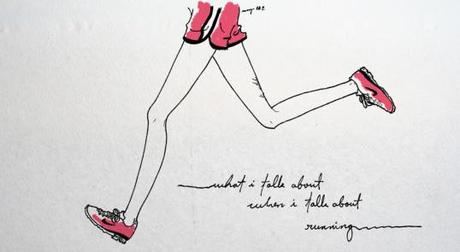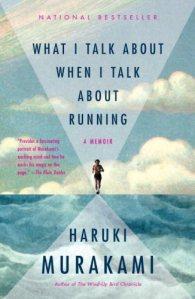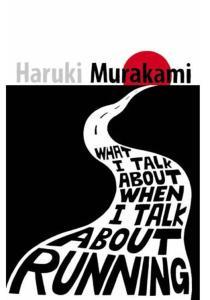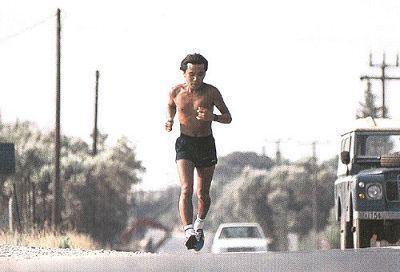“Life is basically unfair. But even in a situation that’s unfair, I think it’s possible to seek out a kind of fairness. Of course, that might take time and effort. And maybe it won’t seem to e worth all that. It’s up to each individual to decide whether or not it is.”

I began reading Haruki Murakami’s What I Talk About When I Talk About Running with a dash of excitement and a twinge of curiosity. I was familiar with Murakami’s impressive work, but only in the way I’m familiar with many things through a passing discussion on NPR. Several of his books have been on my reading list for some time, but this wasn’t one of them. However, when I found out he was a runner, on top of being a prolific author, I got even more excited. It’s safe to assume that my entry into this text was more out of my love of running or it wouldn’t have skipped to the top of the list. A New York Times book reviewer summed it up well when he said “I’m guessing that the potential readership for “What I Talk About When I Talk About Running” is 70 percent Murakami nuts, 10 percent running enthusiasts and an overlapping 20 percent who will be on the brink of orgasm before they’ve even sprinted to the cash register.”


I picked up the book more due to my love of running, but became quickly enchanted with Haruki Murakami and his consistent, practical, and philosophical approach to life, the universe, and running. He didn’t begin running seriously until he was 33, and now runs 6 miles a day like clockwork. He has competed in over 25 marathons, ran a 100K, and has recently entered the world of triathlons. At the end of the day, Murakami is your average runner, and you are likely to see him out on any given day putting in his miles, listening to his musical selection for the day, and taking in the scenery (well, if you happen to live in Boston or Tokyo that is). Throughout the book, his running consistency and the dedication he shares with you becomes a metaphor for his life and the many accomplishments he has earned throughout his career. He isn’t winning races but that isn’t the point. He simply loves to be healthy and active. He loves to run. I can understand that.
“…I didn’t start running because somebody asked me to become a runner…one day, out of the blue, I started to run-simply because I wanted to.”
He takes a calm, methodical approach to his writing and his running, and I felt a connection as I listened to him weave together stories of his running experiences, his training for races, his preparation for the New York City Marathon. He isn’t trying to sell you on a particular way of running, or a new amazing training routine. He isn’t making any bold claims about how running has completely transformed his life. He is simply sharing his thoughts on running, and in doing so, is demonstrating just what a profound impact it can have on a person without even realizing it. His dedication to running every day, just like his dedication to writing, stems from the realization that maintaining consistency in anything you do will lead to accomplishing the goals you are seeking. This is not to say that there won’t be setbacks, injuries, delays, or surprises, but that’s part of the experience. Ultimately, I’m not sure if his running is a metaphor for his writing, or vice-versa. In each, endurance is a prerequisite for success.
“…a person doesn’t become a runner because someone recommends it. People basically become runners because they’re meant to.”
His prose is conversational, albeit a bit redundant at times, and he meanders through his stories, loosely connecting them to each other but not entirely developing a theme for the book, other than the general relevance of running to his life. In some ways, the book has the same quality as a Sunday afternoon conversation with your grandfather, sitting on the front porch as a kid.

“Pain is inevitable. Suffering is optional. Say you’re running and you start to think, Man this hurts, I can’t take it anymore. The hurt part is an unavoidable reality, but whether or not you can stand any more is up to the runner himself. This pretty much sums up the most important aspect of marathon running.”
I certainly find myself relating to him at points, and enjoying the lazy Sunday afternoon conversation. He gave me pause at many junctions to reflect on my own running (as well as my writing), and I enjoyed the opportunity to develop my thoughts. I suppose reading the book was much like any of my long solo runs. I took in the scenery and enjoyed the world around me but was still able to get lost in my head. What I Talk About When I Talk About Running isn’t going to motivate you to run or inspire you to run further, but if you are patient and wait for it, you may begin to seek out the kind of fairness you need.
“I’m often asked what I think about as I run. Usually the people who ask this have never run long distances themselves. I always ponder the question. What exactly do I think about when I’m running? I don’t have a clue.”
